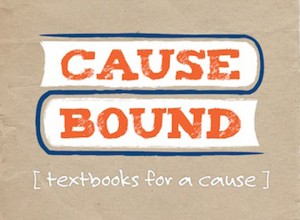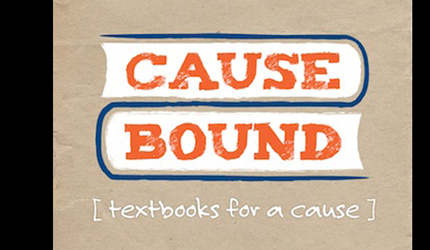
Jared Allen, 2009 Baylor graduate, launched Cause Bound in September 2010. Cause Bound is a program that donates a textbook to a school in a third-world country for every textbook students buy through the organization.
Baylor alum seeks to change world with textbook program Cause Bound
By James Stockton
Reporter
Most people don’t like to buy textbooks. But since textbooks are essential to college life, why not save the world when you buy them?
This is what a social venture called Cause Bound is attempting to do.
Jared Allen, a 2009 graduate of the Hankamer School of Business, began Cause Bound in September as a way to help save students money on textbooks while giving students in developing countries a chance for a better education.
“Every time I went shopping for textbooks, I was put off by the whole process,” Allen said of his experiences spending hundreds of dollars on college textbooks.
Allen’s mission is not only to help students around the world achieve better education, but also to help U.S. students save money on books.
The idea is that for every textbook bought through Cause Bound, the organization donates a textbook to a school in a Third World country.
This one-for-one model is the basis of Allen’s business plan and an idea he picked up while interning for the popular social venture TOMS Shoes.
While the idea sounds simple enough, the execution and effect are both complex and far-reaching.
“There are hundreds of thousands of schools around the world that don’t have enough textbooks, or any textbooks at all,” Allen said. “Education is something that can bring people out of poverty.”
As a member of two other social ventures, Dealgooder.com, a shopping site that donates half of its proceeds to a featured charity, and Commonstudio, a design company with an emphasis on social and ecological change, Allen’s passion is helping those in need, a desire that began while at Baylor.
Dr. Steve Bradley, assistant professor of management at Baylor, teaches the social entrepreneurship and economical development class.
“It wasn’t until I took Dr. Bradley’s class that I really got interested in social entrepreneurship,” Allen said.
Allen points to a specific project he worked on in Bradley’s class as inspiration for Cause Bound.The project, done in conjunction with WholeTree, is called the coconut husk project.
It involves making automobile parts out of coconut husks. The idea behind the coconut project and other social entrepreneurship ventures is to create opportunities of lifestyle improvement for those who live in developing countries.
“[Social entrepreneurship is] trying to think of innovative opportunities … to do things that create jobs and allow them to use the resources they have there,” Bradley said.
The difference between social entrepreneurship and social work is the profit.
Kendall Artz, chair and director of the entrepreneurship program, has advice for Allen and others like him.
“[Allen] has to make sure that the business model is sustainable,” Artz said. “You have to design a business that is profitable enough … to continue to provide the social benefits also.”
As for being profitable, every student can attest to the profitability of textbooks. For Allen, the key is recognition.
That is what Allen and his team are working on now. Their goal is to have their first giving program in Central America within the next few weeks, and ultimately to give 2,500 textbooks to students around the world by the end of 2012.
“You as a student and the student in need [around the world] are bound by this book,” Allen said.
That’s what Cause Bound is about: saving the world while saving students’ money, one textbook at a time.






